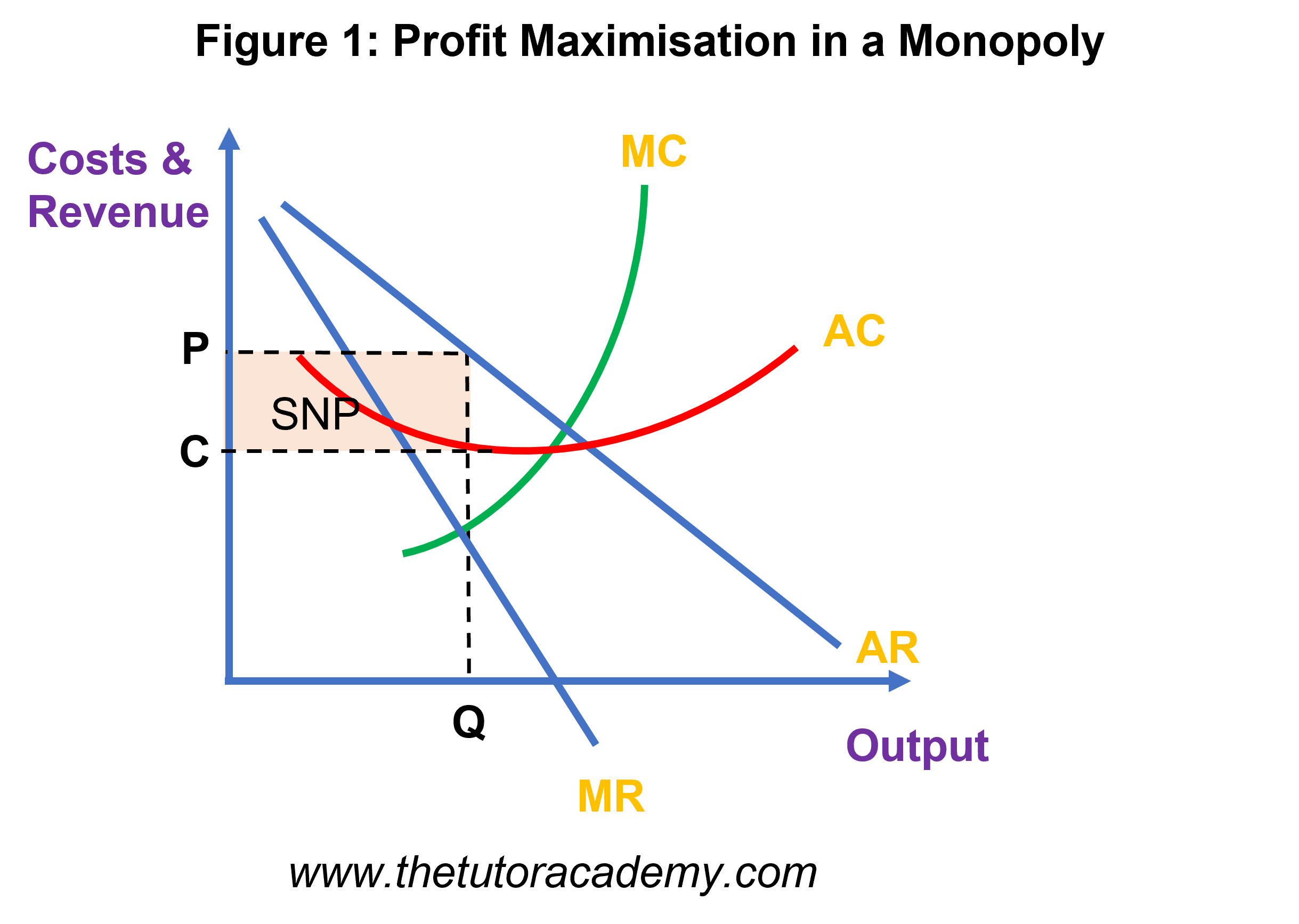Evaluate whether a monopoly is likely to operate efficiently
Refer to at least one monopoly of your choice.
25 marks
Specimen paper
A monopoly is a market which is dominated by one firm. A firm can have monopoly power by owning 25% market share. A monopoly has high barriers to entry, imperfect information, a unique product, and price making ability. It is useful to consider if a monopoly is productively, allocatively, or dynamically efficient.
In many ways, monopolies are not efficient. Productive efficiency is when average cost is minimised. This happens at the quantity when MC = AC. A monopoly chooses to profit maximise, which happens at the quantity where MC = MR. This can be seen in the diagram below, where the monopolist sells an output of Q at a high price of P. The shaded area shows the supernormal profit they are making.

One of the reasons that monopolies are not productively efficient is because they have no incentive to minimise costs, because they can make profit by setting high prices instead of worrying about lowering costs. This is called X-inefficiency. Furthermore, monopolies are not allocatively efficient either. Allocative efficiency is when social welfare is maximised. This happens when MC = AR, so that consumer and producer surplus is maximised. This means setting a fair price that is in the interest of everyone in society. A monopoly, such as Apple, prioritises maximising their profit, so they set a very high price and sell a low output, so they do not have allocative efficiency.
However, monopolies like Apple do act in the best interest of consumers despite the high prices. They try to produce goods and services that will be helpful to society.
Monopolies are dynamically efficient, and they are the only market structure who can achieve this. Dynamic efficiency is when there are supernormal profits in the long run, which can be re-invested to improve and innovate products. For example, if Apple didn't make profit on the iPhone 4, then the iPhone 15 wouldn't exist. Every time Apple made profit, they re-invested it and improved the next iPhone.
However, some monopolies like energy companies may make supernormal profit in the long run, yet they will not re-invest it to improve products for customers.
If there is a way to ensure that monopolies re-invest profits, and also do not charge excessively high prices to customers, then monopolies could be considered beneficial to society. Overall, most monpolies are dynamically efficient but none are allocatively or productively efficient.
Plan
Intro: Define and explain the characteristics of a monopoly. Mention the efficiences you will discuss.
Paragraph 1: Monopolies are generally not efficient (main focus on productive and allocative efficiency)
Paragraph 2: Monopolies have dynamic efficiency. Emphasise that they are the only market structure which is dynamically efficient.